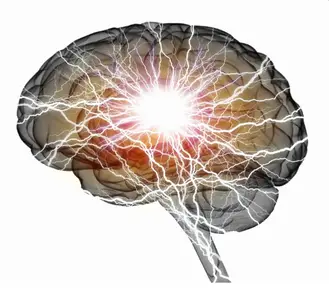 A compelling study has found that just five 20-minute magnetic stimulation sessions restored an older person's memory to the level of a younger control group. Researchers at Northwestern University have used a non-invasive form of magnetic brain stimulation to improve the memory of older adults. After just five short sessions the older adults scored as well as a younger cohort on a variety of memory tasks. Transcranial Magnetic Stimulation (TMS) is one of the more promising brain stimulation techniques currently being explored by scientists. Unlike other methods, which often involve invasive surgical implantation of electrodes, TMS is non-invasive, simply firing painless magnetic pulses into specific regions of the brain. The idea is that these magnetic pulses can alter neuronal activity, and recent technological advances have allowed researchers to target regions of the brain with incredible precision and specificity. The new Northwestern research focused on improving age-related memory loss, a common kind of cognitive decline associated with normal aging. To do this the scientists first homed in on the hippocampus, a region of the brain responsible for memory and known to atrophy as we age. "It's the part of the brain that links two unrelated things together into a memory, like the place you left your keys or your new neighbor's name," explains lead on the study, Joel Voss. "Older adults often complain about having trouble with this." Because the hippocampus was found to be too deep to be affected by the magnetic pulses of TMS, the researchers focused on the parietal lobe. This brain region is generally located behind a person's left ear, and is known to be highly connected to the hippocampus. The hypothesis was that stimulating the parietal lobe would synchronously stimulate the hippocampus, and subsequently improve neural activity in these brain regions responsible for memory. The cohort studied was small, 16 adults aged between 64 and 80, but the results were reasonably conclusive. All subjects were first tested on an array of different memory tasks. The older cohort were, on average, only correct around 40 percent of the time, compared to a control group of younger subjects that scored an average of around 55 percent. For each of the next five days the older subjects underwent a 20-minute session consisting of either a fake placebo stimulation or the targeted TMS. Each subject was then again tested on a series of memory tasks. Those older subjects receiving the TMS displayed significant improvements in the memory tests compared to the placebo group. Using fMRI imaging the researchers found the TMS subjects showed increased neural signaling in the hippocampal-cortical network. And, perhaps most impressively, the older cohort's results on the memory tasks had improved to the point they were similar to the younger control group. "Older people's memory got better up to the level that we could no longer tell them apart from younger people," says Voss. "They got substantially better." This exciting new study somewhat resembles recent work from a team at Boston University using non-invasive electrical stimulation to improve working memory in 70-year-old subjects to the point they functioned like healthy 20-year-olds. That research used electrodes on the scalp to send mild electrical pulses through the frontotemporal cortex, designed to increase neural synchronization patterns, and subsequently improve working memory function. It is early days for this kind of brain stimulation research, and for the TMS work at Northwestern there are many unresolved questions that still need to be answered. How long do the memory improvements last? Are there other brain regions that can be stimulated for better results? And, does this technique work for dementia or early-stage Alzheimer's? Voss and his Northwestern team are determined to try to answer all these questions in the near future. The new study was published in the journal Neurology. Source: Northwestern University
0 Comments
Leave a Reply. |
Written, Compiled & Edited byThe Bergen Review Media Team Archives
April 2024
Categories
All
|
|
Bergen Review Media is a
WebClientReach, llc Company |
50 East Ridgewood Ave. #215
Ridgewood, NJ 07050 Phone: (201) 948-5500 |
The Bergen Review is Bergen county's concierge for the best businesses, restaurants & venues in New Jersey. Our agency has a combined total of over 15 years experience in online media and marketing. Our team of experts scour every nook and cranny of New Jerseys best businesses, restaurants & venues to present to our clients the full scoop of where best deals & experiences are. Even after researching & looking at reviews, finding the REAL scoop on what Businesses, restaurants or venues best fit your interest can be a challenge. Bergen Review Media has a team that researches & visits various establishments. Making sure the consumer gets the best experience.
|
Website by Bergen Review Media

 RSS Feed
RSS Feed






